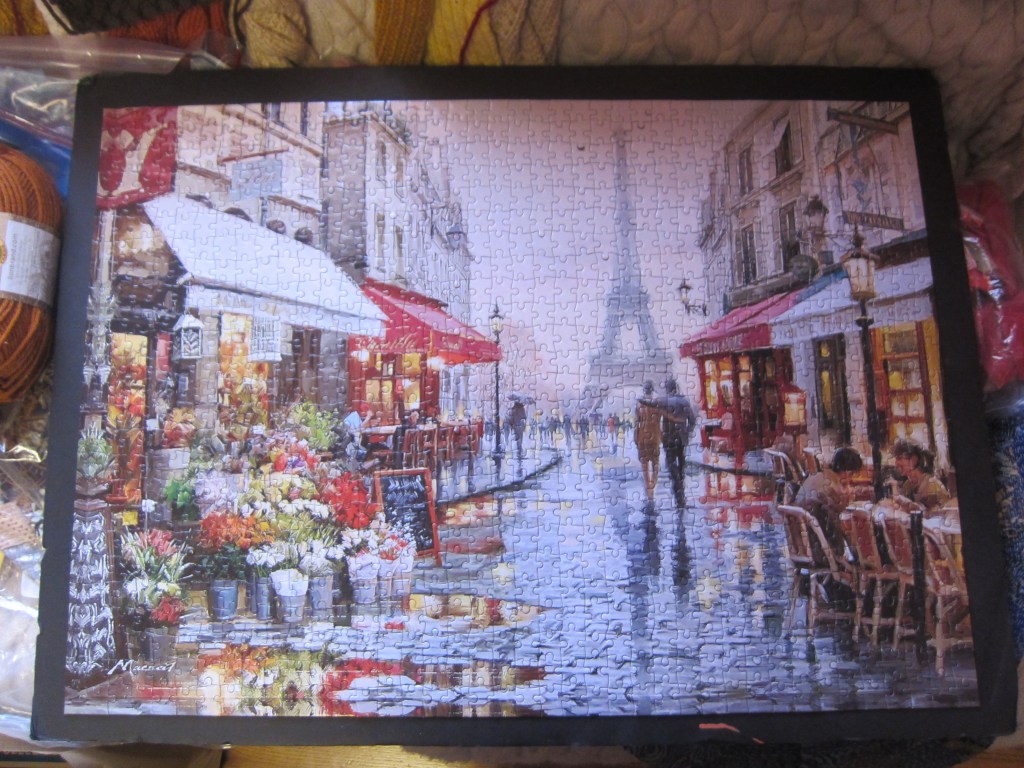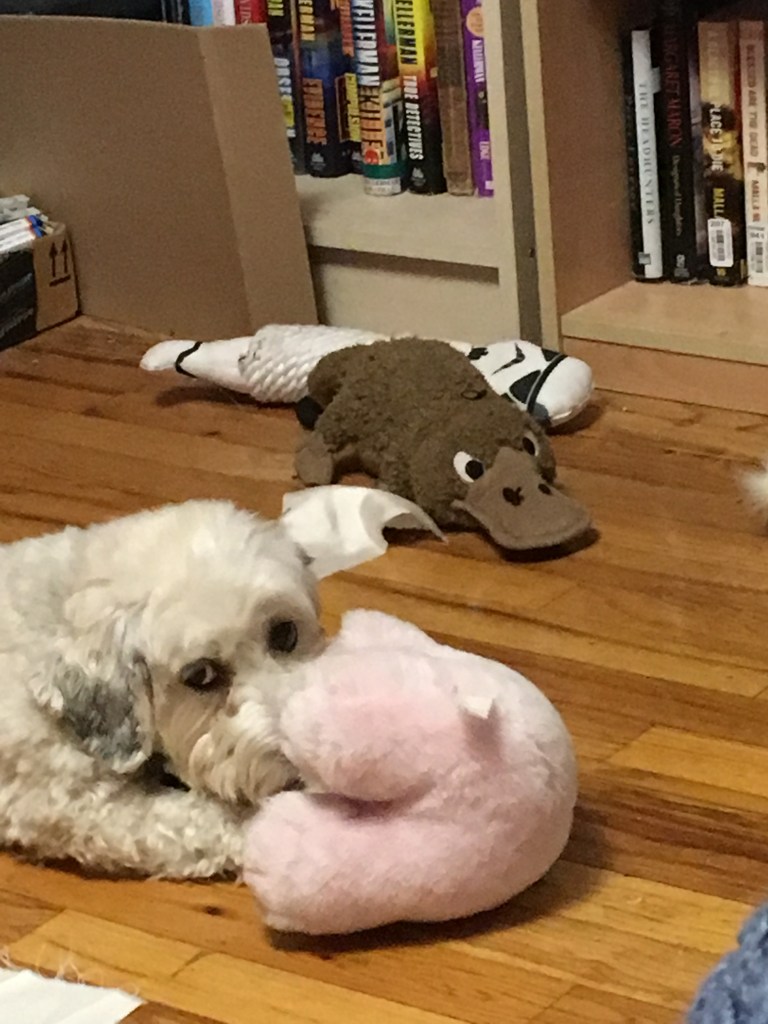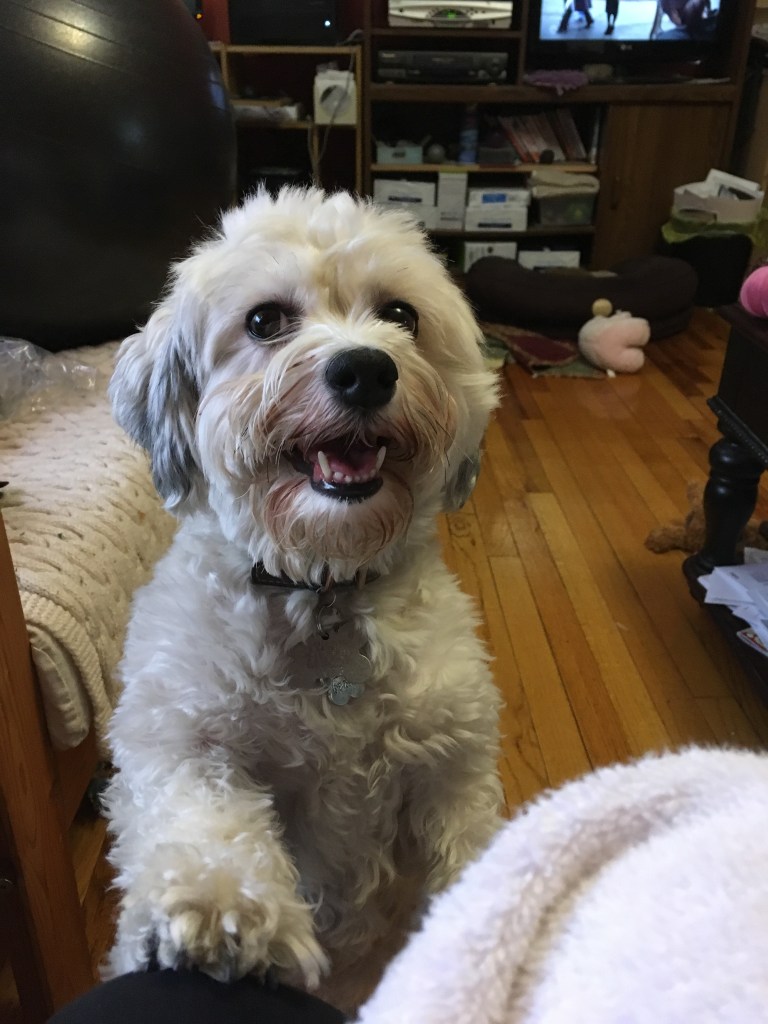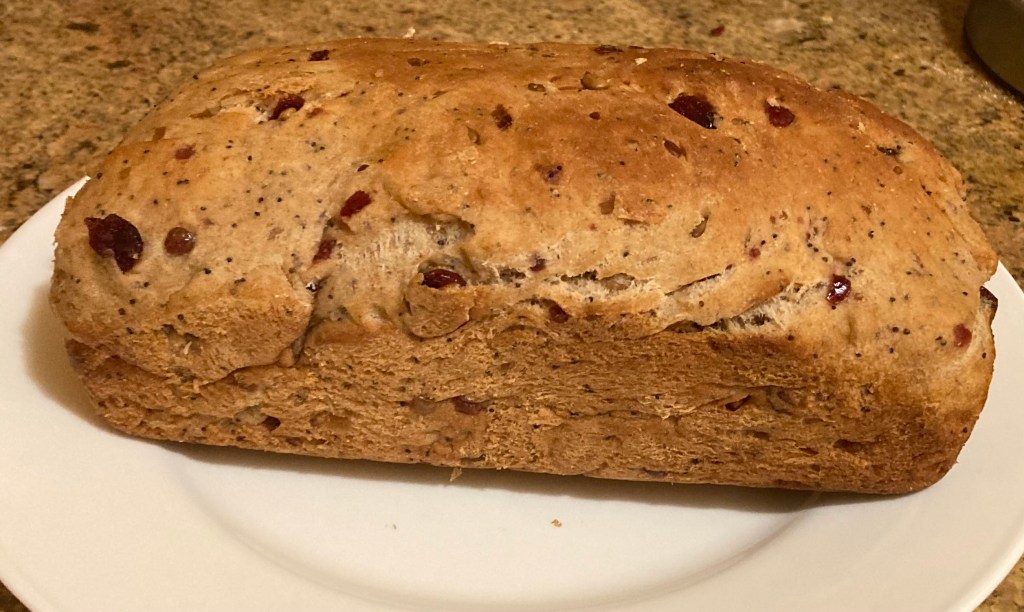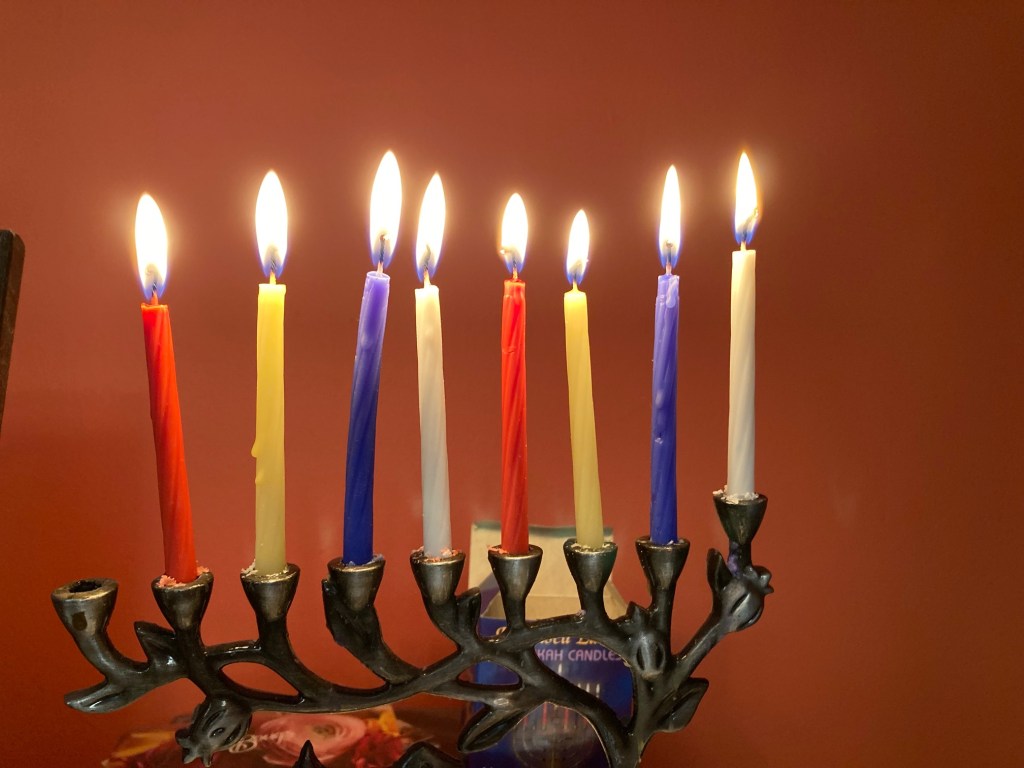I finally got my Covid vaccine booster a few weeks ago. I’d been putting it off, first because I didn’t think I qualified, then because it was unclear if I should get one, and then because I was worried about how my body would react to a third shot (Mom had a bad reaction to her booster shot back in September). My plan was to wait for winter break, so that I could rest afterwards and not worry about having to do battle with, I mean teach, my students. But then Omicron came along, and the doctors on TV who’d been questioning the morality of getting third shots in the United States while poorer countries still weren’t getting their first shots suddenly did a one eighty and said that we should go out and get our boosters, yesterday. And, of course, by that time all of the appointments had been taken, by other adults getting boosters and by the kids getting their first and second shots. But then my synagogue magically sent out an email about a booster clinic happening at a local college, and I found an appointment right away, and since the boosters were now half the regular dose, instead of the full dose Mom got in September, the only side effect I experienced was pain in my arm at the site of vaccination for two days.
And yet, once that anxiety was out of the way, I was still anxious. Very anxious. So it wasn’t just Covid, or Omicron, causing my anxiety, it was more than that. At around the same time, I realized that I was not up to thinking about New Year’s resolutions this year, because I’m still struggling with the ones from years past: trying to get my writing on track, working on Intuitive Eating, trying to figure out better ways to deal with my health, etc. I was actually offered a good part time job as a social worker, by someone I really respect, and I couldn’t take it because two full days at work would wipe me out for the next two weeks. It’s become clear to me that I am an even slower turtle than ever, and that that’s where the anxiety is coming from.
But I can’t fix my health issues all of a sudden, or become someone who makes changes at the speed of light, and I realized that what I still need to work on most is how to accept where I’m at, and respect my own pace, without letting the anxiety overwhelm me.
One thing that’s been working for me lately is jigsaw puzzle therapy: whenever I feel anxious about all of the things I haven’t done yet, or feel so confused and discombobulated that I can’t even figure out what I’m feeling, I work on a jigsaw puzzle. I like everything about jigsaw puzzles: the sorting, matching the colors and patterns, the image gradually appearing in front of me like magic, the sense of accomplishment, and then the chance to start over from the beginning and do the whole thing again.
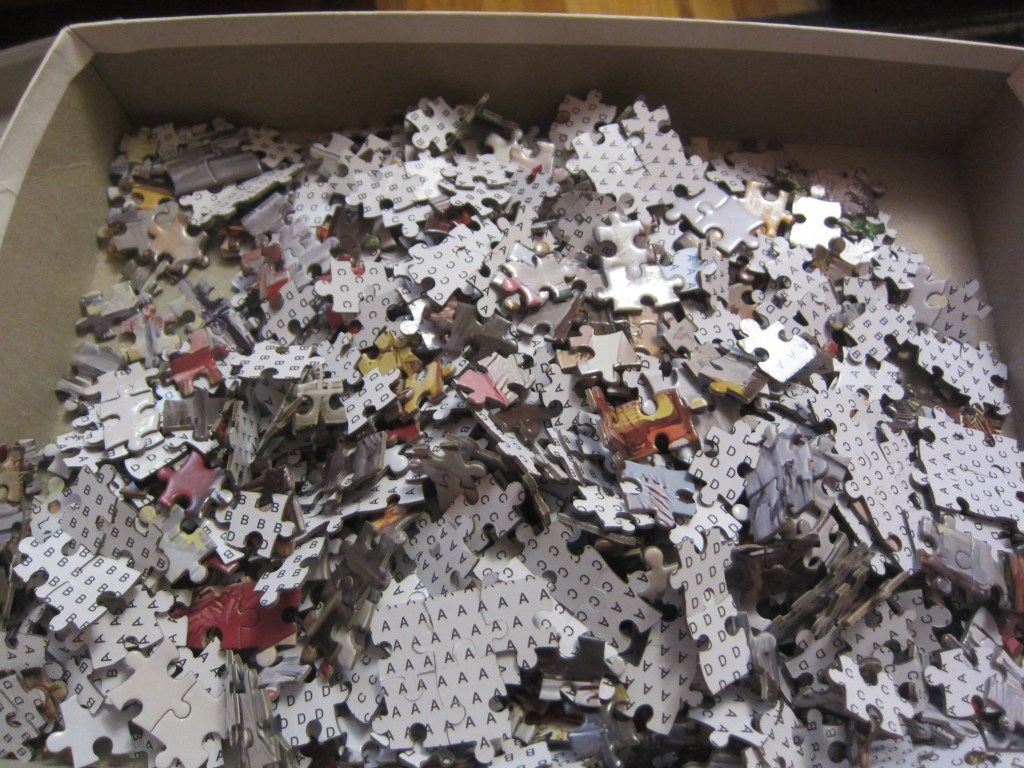
I used to have piles of jigsaw puzzles in the old apartment, because they helped untie the knots that kept me locked in place. I was so thrilled when I was able to give those puzzles away, because I’d found other things that helped even more: like knitting and baking and cooking, and eventually going back to school. But lately, I’ve needed my jigsaw puzzles again. They don’t require a lot of physical effort, and they don’t inspire too much self-criticism; they just activate the analytical and visual parts of my brain and help me slow down my thoughts to a more reasonable pace, so that I can try to deal with them one by one.
And knowing that I have jigsaw puzzle therapy available whenever I need it makes it easier for me to test my boundaries in other ways, with more baking (a Mille Crepe cake that took all day to make and came out sort of Meh), and more outings (HMart, the Korean market, was a mushroom bonanza!), and more essays delving into the past, bit by bit.
I’m looking forward to a time when I won’t need quite so much Jigsaw puzzle therapy to help me through each day, but until then I’m happy to have something that works for me (and, conveniently, pairs so well with binging on Christmas movies!).
If you haven’t had a chance yet, please check out my Young Adult novel, Yeshiva Girl, on Amazon. And if you feel called to write a review of the book, on Amazon, or anywhere else, I’d be honored.
Yeshiva Girl is about a Jewish teenager on Long Island, named Isabel, though her father calls her Jezebel. Her father has been accused of inappropriate sexual behavior with one of his students, which he denies, but Izzy implicitly believes it’s true. As a result of his problems, her father sends her to a co-ed Orthodox yeshiva for tenth grade, out of the blue, and Izzy and her mother can’t figure out how to prevent it. At Yeshiva, though, Izzy finds that religious people are much more complicated than she had expected. Some, like her father, may use religion as a place to hide, but others search for and find comfort, and community, and even enlightenment. The question is, what will Izzy find?



